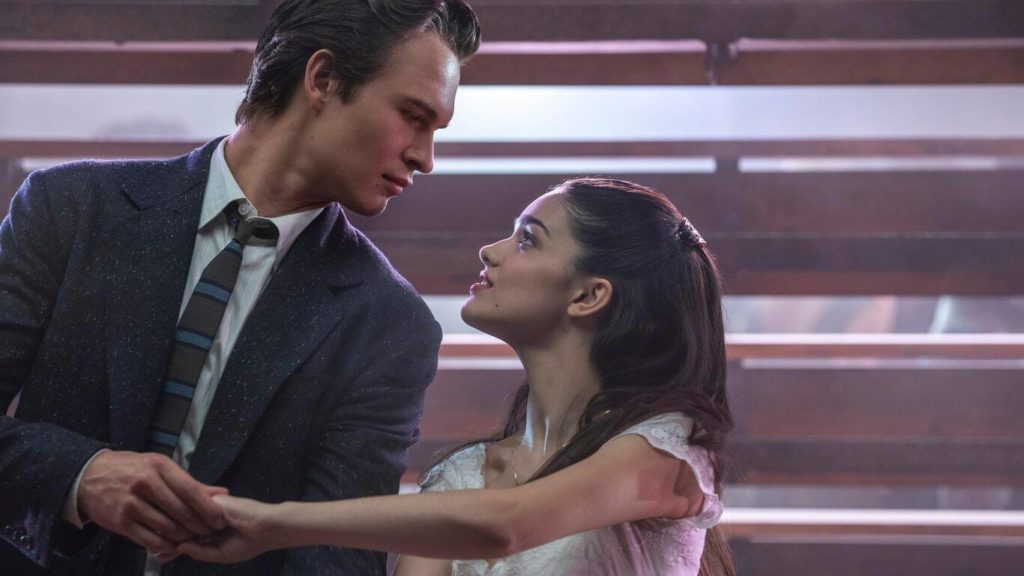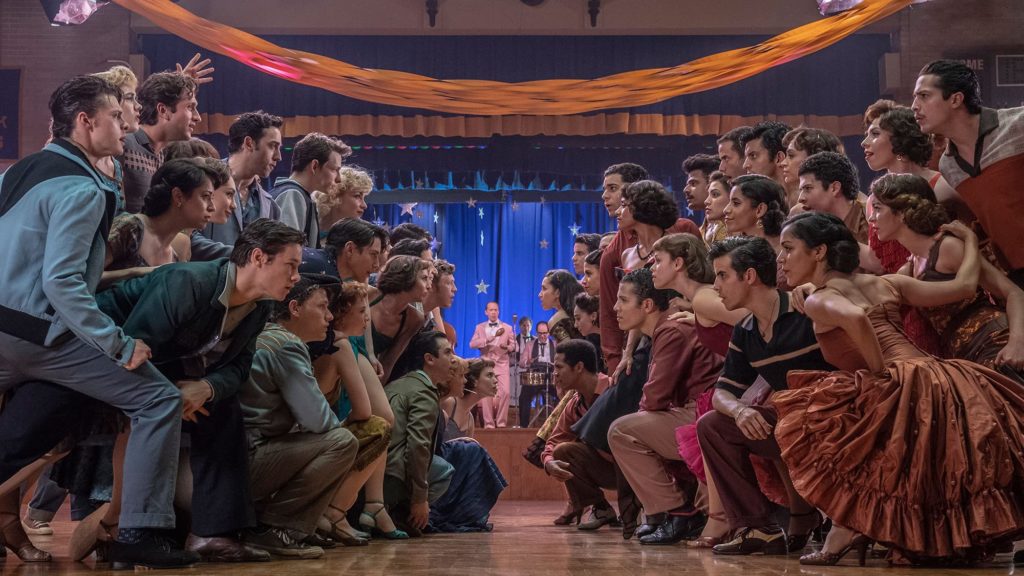
| USA, 2021 | Musical | Mainstream | Trailer |
Let me share a thought first:
Throughout all the history of humankind, the act of storytelling has been of crucial importance. Not only as a cultural manifestation, but also as a way to know ourselves and our identity better. It is well-known that there exist certain topics and motifs that are universal and never fade off, deeply carved in our collective unconscious, and are constantly repeated in stories of any age, culture or circumstance. When storytelling developed and became an art capable of assuming dexterity and magistry, different instances of stories would reuse the same topics, archetypes and motifs, reimagining them with different purposes and results. And furthermore, when storytellers became authors with their own right, they would even retell whole, closed, already elaborated narrations, giving them their own twists and highlighting the particular aspects they would perceive as more important than others.
Where do I want to arrive with this introduction? Simply, Steven Spielberg’s instance of West Side Story is the quintessence of this phenomenon, as old as our sentient species. In all aspects. It’s not only a new version of an already beloved and classic movie, of which some people argue its existance is injustified given the excellent quality of ther first version in the 1960s, and proceed to insult the director’s boldness and audacity to venture to produce this movie. These same people seem to be oblivious that the original West Side Story movie is already a version of an existing theatrical piece, which is also a reimagination of another classic as Romeo and Juliet is (with its own retellings). This work is by its own another reimagination, this time of ancient Roman tragedy Pyramus and Thisbe… and probably, the latter is also a particular view on an intrinsecally human hieroglyph that most surely stems from the dawn of our world and has been depicted in other, more ancient stories by even more forgotten rhapsodes and minstrels we may have lost.
In its condition as bearer of the panthagruelic chain of shapes given to the human soul I just mentioned, West Side Story only needs to rely on a master storyteller to reclaim its place in the big tree of our untangible heritage. And, another thing couldn’t be truer than Steven Spielberg knowing how to make a movie. Even his minor and less acclaimed works have a certain charm.
And now, the proper corner comment!
I am a big fan of West Side Story. I have been ever since I was very young. I have nebulous memories of watching the original 1960s version in the small television of a seaside hotel room in some family summer holidays 20 years ago, and powerful images from that time still stay in my backbone. Its score is a masterpiece of 20th century classical music, and it’s one of my favourite musical works of all time, for which I have paid several times to have the opportunity to listen to, both in various concerts and in physical media like CD or vinyl discs.
So, when I read that Steven Spielberg was releasing a new version (I won’t call it remake, due to the reasons I am going to state here), I got very happy. It may be thought that new versions of beloved stories might never be perceived on a fully neutral stance, because one can be biased, and this psychological siding hinders the full enjoyment. But I like West Side Story so DAMN MUCH, that the sole presence of a new version, lively, full 4K, with amazing colorimetry, pristine sound quality and fresh new faces, could only mean avid curiosity to see the outcome.
Something I could really perceive when watching this work is the deep involvement of the director and his relied team -even John Williams appears as Music Consultor-. This West Side Story continuously delivers the flavour of being a personal project: a little child in arms of its father. The brief dedicatory “To my dad”, that appears when the credits start to roll, confirms this. Spielberg has put all the experience gathered in his career to produce a masterwork of filmic dexterity. This movie flows, all different parts are properly put together, and the biggest risk -joining music with image- is satisfyingly overcome. When the OST is arguably the biggest asset in a movie, an inferior sceneplay is likely unable to bear the weight of the sound and the whole product could break apart. Luckily, it is not the case. It feels light as a feather.
If the original movie of West Side Story showed a theater play in Cinemascope and Technicolor, but respecting any other asset typical of the Broadway world, today’s version has, no more and no less, the intention to make a movie out of the scriptbook. A true MOVIE, with all the letters and associated resources and filmic language. Perhaps the ballet here isn’t as flashy or mathematically planned as in the original version, perhaps the actors aren’t as mannequin-ish, perhaps the decors and props are not as preciosist. But this movie gains in organicness, in realism, in filmic charm. You can taste New York’s 1950’s slums, the dust, pollution, violence, laughter and smell of freshly-washed hanged clothes. The way the action is filmed and represented, and even how the characters interact -both with other characters and with the spatial setting- is just telling you: “Hey, this is reality! This is really happening, and it is not just a planned play!”. You are watching a realist movie about something happening in that place and that time, and not a recorded stage.
When reading these statements, one could think that in this case the musical aspect of West Side Story could feel disjointed and frivolous. How can a wondrous classical score fit such a premise? Commitment with realism, a priori, does not seem compatible with an artificious attribute like that. But, thankfully, the movie is planned out in such a way that the OST does not only not feel odd when heard at the same time as the shown action, but also highlights the charm of it. The original score of Leonard Bernstein is respected and integrally reproduced, and if you are a lover of the work, more than a tear will surely come to your eyes when hearing it with new but powerful voices and the wonderful spectacle of movement and colour in front of you.
As a last comment, I can say that this movie comes out in an appropriate moment, because the problems and situations it addresses are as hot today as they were during the time the action plays (and even throughout all humanity’s past history). Therefore, some particular details in the plot and scenes, including some changed characters, are gracefully but bluntly depicted in order to make the audience reflect on what they are witnessing, and how familiar it tastes. And all of this, without lowering the artistic qualities of this movie. Not a single bit.
To conclude, West Side Story is a proof that classics are eternal, because they always look good, regardless on how they are reinterpreted, and their beauty is preserved. If there is a single bad thing I could say about this movie, it is that the original version already exists, and this will sadly hinder it to transcend as a modern classic.
